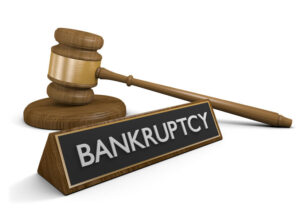Sometimes, life doesn’t pan out the way you expect it to. You may find yourself in the awkward position of having a tenant who is filing for bankruptcy. But how does this affect you? Read on to learn more:
The automatic stay
The first thing to understand about bankruptcy in landlord-tenant relationships is that the simple filing of a petition for bankruptcy protection enacts a very powerful federal law – 11 USC § 362 – the automatic stay provision of the bankruptcy code. The automatic stay is, quite literally, a stop of any and all collection activity of any kind or nature against the petitioning debtor. It happens automatically upon the filing of the petition. You won’t receive any special notification from your tenant or the court telling you this stay exists.
How the automatic stay affects you
What this automatic stay means to you is significant. The bankruptcy code is very liberal in identifying what constitutes collection activity. For all of the landlords out there that includes simply sending a demand for possession for non-payment of rent, or even filing an eviction action to recover the possession of your property. This automatic stay is so powerful that it even applies to actions to terminate a tenancy even when you aren’t asking for any payment. Once your tenant files for bankruptcy, you are precluded from taking any action to enforce your rights against them until the bankruptcy is discharged or the automatic stay is lifted.
What to do
Landlords must be proactive in protecting and enforcing their rights in a tenant’s bankruptcy in order to mitigate loss. As such, getting the automatic stay lifted in a bankruptcy is of the utmost importance. After all, the worst thing you can do when you receive notice of your tenant’s bankruptcy filing is to do nothing.
It is important for landlords to understand that the vast majority of tenant bankruptcy proceedings mean that your tenant’s debt to you is extinguished. There is usually very little you can do about this other than getting a stay lifted to remove them from your property.
Thankfully, a knowledgeable real estate attorney such as those at The Law Offices of Aaron D. Cox can help you get that automatic stay lifted. To learn more, contact us today.


